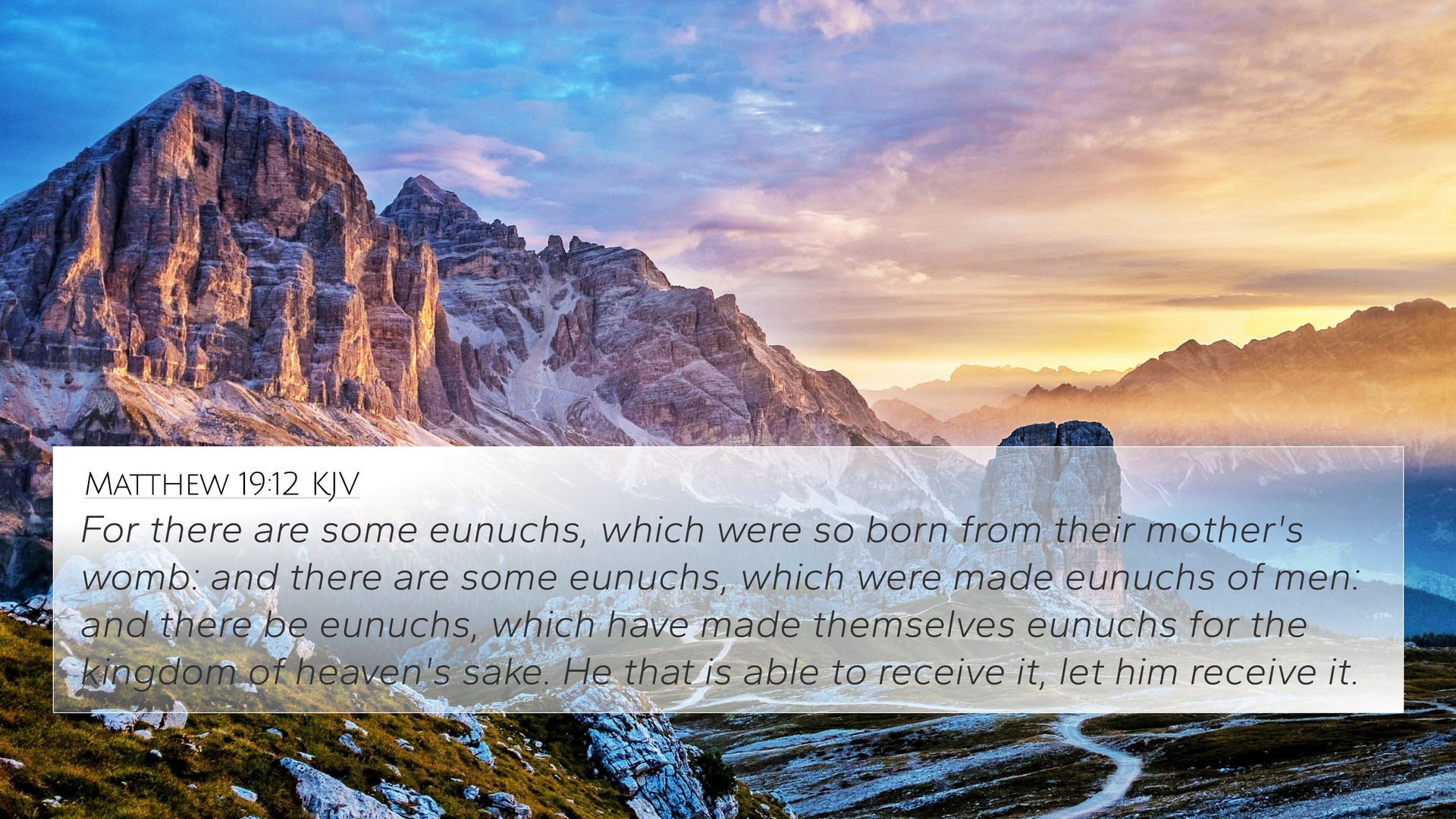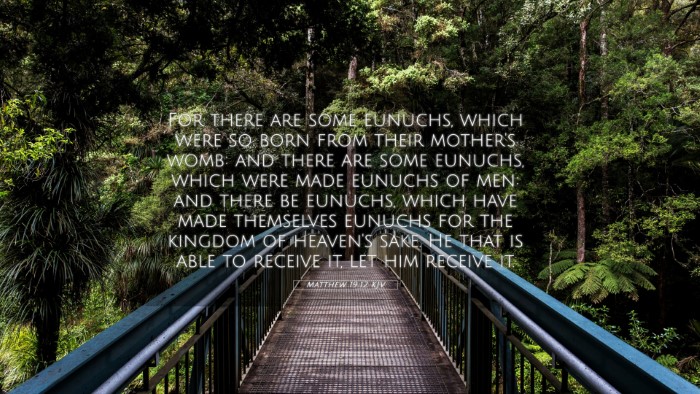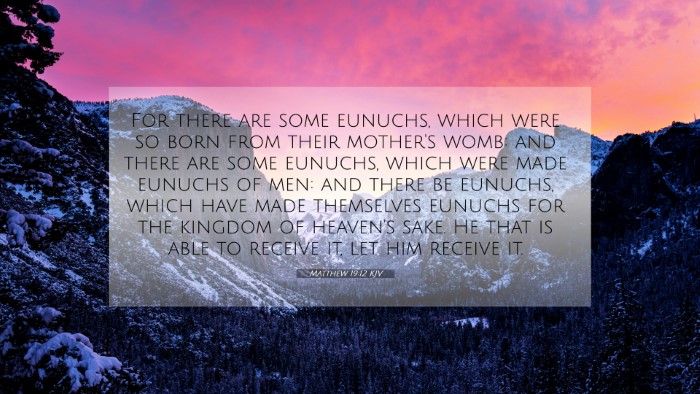Understanding Matthew 19:12
Matthew 19:12 states: "For there are eunuchs who were born that way, and there are eunuchs who have been made eunuchs by others; and there are those who choose to live like eunuchs for the sake of the kingdom of heaven. The one who can accept this should accept it." This verse encompasses profound teachings regarding celibacy, commitment, and the Kingdom of Heaven.
Summary of Meanings
This verse intricately weaves together the concepts of physical and spiritual eunuchs, indicating both natural and voluntary choices regarding celibacy.
-
Natural Eunuchs:
Those born incapable of marriage or procreation.
-
Made Eunuchs:
Those who have been rendered unable to marry through external circumstances or societal decisions.
-
Voluntary Eunuchs:
Individuals who choose celibacy for spiritual reasons, dedicating their lives to God's service.
Insights from Commentaries
Matthew Henry's Commentary
Matthew Henry emphasizes that the call to celibacy is not a command but a choice that certain individuals may be led to consider for the sake of the Kingdom. He acknowledges the value in such a commitment while recognizing that it isn’t suitable for everyone.
Albert Barnes' Commentary
Albert Barnes interprets the verse as indicating that while some movements in society render people without marital prospects (e.g., forced eunuchs), others might embrace celibacy willingly due to the elevation of spiritual pursuits. He indicates that such choices must come from an understanding heart that is willing to sacrifice worldly pleasures for higher spiritual goals.
Adam Clarke's Commentary
Adam Clarke discusses the sociocultural implications of the term “eunuchs,” explaining that it can refer to a variety of states of being, including those who choose to forego marriage intentionally. He recognizes that in the context of discussing marriage and relationships, celibacy should be framed positively as an honorable choice rather than a deprivation.
Bible Cross-References
- Matthew 19:10-11: The disciples question Jesus on the topic of marriage and divorce.
- 1 Corinthians 7:7: Paul speaks about the gift of celibacy and marriage.
- Matthew 5:27-30: Jesus teaches about lust, indicating that radical measures may be justified for the sake of purity.
- Revelation 14:4: Describes believers as "virgins," symbolizing their commitment to Christ.
- 1 Timothy 4:3: Highlights the importance of celibacy as it pertains to false teaching.
- Romans 12:1: Encourages believers to offer their bodies as living sacrifices, tying the theme of holiness to personal choices.
- Philippians 3:14: Paul speaks of pressing on towards a heavenly goal, paralleling the theme of devotion in celibacy.
Thematic Connections
This verse connects several theological themes.
- Sacrifice and Commitment: The concept of reluctance to marry in favor of spiritual duties resonates deeply throughout scripture.
- Divine Calling: The idea that God calls some individuals to remain single represents an important aspect of Christian discipleship.
- Value of Celibacy: Both celibacy and marriage can be understood as ways to serve the Kingdom effectively.
Conclusion
Matthew 19:12 reminds readers of the complex interrelationship between marriage, celibacy, and commitment to God's kingdom. By cross-referencing various scriptures, seekers can better understand the multifaceted nature of this teachings and the choices individuals face. This verse serves as an invitation to reflect upon personal life choices in the wider context of divine purpose.
Further Study Tools and Resources
For those seeking deeper insights through cross-referencing and parallel studies:
- Utilize a Bible concordance to find thematic connections.
- Engage with a cross-reference Bible study guide to enrich understanding.
- Explore tools for Bible chain references to trace concepts throughout scripture.
- Consider using Bible cross-reference systems to enhance study methods and resource access.







